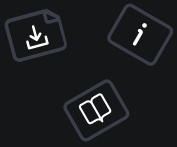의존성 주입 컨테이너
개요
의존성 주입 컨테이너(DIC)는 애플리케이션의 의존성을 관리할 수 있게 해주는 강력한 확장 기능입니다.
이해하기
의존성 주입(DI)은 현대 PHP 프레임워크의 핵심 개념으로, 객체의 인스턴스화와 구성을 관리하는 데 사용됩니다. DIC 라이브러리의 예로는 flightphp/container, Dice, Pimple, PHP-DI, league/container 등이 있습니다.
DIC는 클래스 생성과 관리를 중앙화된 위치에서 허용하는 멋진 방법입니다. 이는 동일한 객체를 여러 클래스(예: 컨트롤러나 미들웨어)에 전달해야 할 때 유용합니다.
기본 사용법
기존 방식은 다음과 같을 수 있습니다:
require 'vendor/autoload.php';
// 데이터베이스에서 사용자 관리 클래스
class UserController {
protected PDO $pdo;
public function __construct(PDO $pdo) {
$this->pdo = $pdo;
}
public function view(int $id) {
$stmt = $this->pdo->prepare('SELECT * FROM users WHERE id = :id');
$stmt->execute(['id' => $id]);
print_r($stmt->fetch());
}
}
// routes.php 파일에서
$db = new PDO('mysql:host=localhost;dbname=test', 'user', 'pass');
$UserController = new UserController($db);
Flight::route('/user/@id', [ $UserController, 'view' ]);
// 다른 UserController 라우트...
Flight::start();위 코드에서 새로운 PDO 객체를 생성하고 UserController 클래스에 전달하는 것을 볼 수 있습니다. 작은 애플리케이션에서는 괜찮지만, 애플리케이션이 성장함에 따라 동일한 PDO 객체를 여러 곳에서 생성하거나 전달해야 한다는 것을 알게 될 것입니다. 여기서 DIC가 유용합니다.
Dice를 사용한 DIC 예제는 다음과 같습니다:
require 'vendor/autoload.php';
// 위와 동일한 클래스. 변경 없음
class UserController {
protected PDO $pdo;
public function __construct(PDO $pdo) {
$this->pdo = $pdo;
}
public function view(int $id) {
$stmt = $this->pdo->prepare('SELECT * FROM users WHERE id = :id');
$stmt->execute(['id' => $id]);
print_r($stmt->fetch());
}
}
// 새로운 컨테이너 생성
$container = new \Dice\Dice;
// 컨테이너가 PDO 객체를 생성하는 방법을 알려주는 규칙 추가
// 아래처럼 자신에게 재할당하는 것을 잊지 마세요!
$container = $container->addRule('PDO', [
// shared는 동일한 객체가 매번 반환된다는 의미
'shared' => true,
'constructParams' => ['mysql:host=localhost;dbname=test', 'user', 'pass' ]
]);
// Flight가 이를 사용하도록 컨테이너 핸들러 등록
Flight::registerContainerHandler(function($class, $params) use ($container) {
return $container->create($class, $params);
});
// 이제 컨테이너를 사용하여 UserController 생성
Flight::route('/user/@id', [ UserController::class, 'view' ]);
Flight::start();이 예제에 많은 추가 코드가 들어간 것 같다고 생각할 수 있습니다.
마법은 PDO 객체가 필요한 다른 컨트롤러가 있을 때 발생합니다.
// 모든 컨트롤러가 PDO 객체를 필요로 하는 생성자를 가진다면
// 아래 라우트들은 자동으로 주입됩니다!!!
Flight::route('/company/@id', [ CompanyController::class, 'view' ]);
Flight::route('/organization/@id', [ OrganizationController::class, 'view' ]);
Flight::route('/category/@id', [ CategoryController::class, 'view' ]);
Flight::route('/settings', [ SettingsController::class, 'view' ]);DIC를 사용하는 추가 이점은 단위 테스트가 훨씬 쉬워진다는 것입니다. 모의 객체를 생성하여 클래스에 전달할 수 있습니다. 이는 애플리케이션 테스트를 작성할 때 큰 이점입니다!
중앙화된 DIC 핸들러 생성
앱을 확장하여 services 파일에서 중앙화된 DIC 핸들러를 생성할 수 있습니다. 예제는 다음과 같습니다:
// services.php
// 새로운 컨테이너 생성
$container = new \Dice\Dice;
// 아래처럼 자신에게 재할당하는 것을 잊지 마세요!
$container = $container->addRule('PDO', [
// shared는 동일한 객체가 매번 반환된다는 의미
'shared' => true,
'constructParams' => ['mysql:host=localhost;dbname=test', 'user', 'pass' ]
]);
// 이제 모든 객체를 생성하는 매핑 가능한 메서드 생성
Flight::map('make', function($class, $params = []) use ($container) {
return $container->create($class, $params);
});
// 컨트롤러/미들웨어에 Flight가 이를 사용하도록 컨테이너 핸들러 등록
Flight::registerContainerHandler(function($class, $params) {
Flight::make($class, $params);
});
// 생성자에서 PDO 객체를 받는 샘플 클래스라고 가정
class EmailCron {
protected PDO $pdo;
public function __construct(PDO $pdo) {
$this->pdo = $pdo;
}
public function send() {
// 이메일 보내는 코드
}
}
// 마지막으로 의존성 주입을 사용하여 객체 생성
$emailCron = Flight::make(EmailCron::class);
$emailCron->send();flightphp/container
Flight에는 의존성 주입을 처리하기 위해 사용할 수 있는 간단한 PSR-11 준수 컨테이너를 제공하는 플러그인이 있습니다. 사용 예제는 다음과 같습니다:
// 예: index.php
require 'vendor/autoload.php';
use flight\Container;
$container = new Container;
$container->set(PDO::class, fn(): PDO => new PDO('sqlite::memory:'));
Flight::registerContainerHandler([$container, 'get']);
class TestController {
private PDO $pdo;
function __construct(PDO $pdo) {
$this->pdo = $pdo;
}
function index() {
var_dump($this->pdo);
// 올바르게 출력됩니다!
}
}
Flight::route('GET /', [TestController::class, 'index']);
Flight::start();flightphp/container의 고급 사용법
의존성을 재귀적으로 해결할 수도 있습니다. 예제는 다음과 같습니다:
<?php
require 'vendor/autoload.php';
use flight\Container;
class User {}
interface UserRepository {
function find(int $id): ?User;
}
class PdoUserRepository implements UserRepository {
private PDO $pdo;
function __construct(PDO $pdo) {
$this->pdo = $pdo;
}
function find(int $id): ?User {
// 구현 ...
return null;
}
}
$container = new Container;
$container->set(PDO::class, static fn(): PDO => new PDO('sqlite::memory:'));
$container->set(UserRepository::class, PdoUserRepository::class);
$userRepository = $container->get(UserRepository::class);
var_dump($userRepository);
/*
object(PdoUserRepository)#4 (1) {
["pdo":"PdoUserRepository":private]=>
object(PDO)#3 (0) {
}
}
*/DICE
자신의 DIC 핸들러를 생성할 수도 있습니다. PSR-11이 아닌(Dice) 사용자 지정 컨테이너를 사용하고 싶을 때 유용합니다. 이를 수행하는 방법은 기본 사용법 섹션을 참조하세요.
또한 Flight를 사용할 때 생활을 더 쉽게 만들어주는 몇 가지 유용한 기본값이 있습니다.
Engine 인스턴스
컨트롤러/미들웨어에서 Engine 인스턴스를 사용하는 경우, 다음과 같이 구성할 수 있습니다:
// 부트스트랩 파일 어딘가에서
$engine = Flight::app();
$container = new \Dice\Dice;
$container = $container->addRule('*', [
'substitutions' => [
// 여기서 인스턴스를 전달합니다
Engine::class => $engine
]
]);
$engine->registerContainerHandler(function($class, $params) use ($container) {
return $container->create($class, $params);
});
// 이제 컨트롤러/미들웨어에서 Engine 인스턴스 사용 가능
class MyController {
public function __construct(Engine $app) {
$this->app = $app;
}
public function index() {
$this->app->render('index');
}
}다른 클래스 추가
컨테이너에 추가하고 싶은 다른 클래스가 있다면, Dice에서는 컨테이너가 자동으로 해결해주므로 쉽습니다. 예제는 다음과 같습니다:
$container = new \Dice\Dice;
// 클래스에 의존성을 주입할 필요가 없다면
// 아무것도 정의할 필요가 없습니다!
Flight::registerContainerHandler(function($class, $params) use ($container) {
return $container->create($class, $params);
});
class MyCustomClass {
public function parseThing() {
return 'thing';
}
}
class UserController {
protected MyCustomClass $MyCustomClass;
public function __construct(MyCustomClass $MyCustomClass) {
$this->MyCustomClass = $MyCustomClass;
}
public function index() {
echo $this->MyCustomClass->parseThing();
}
}
Flight::route('/user', 'UserController->index');PSR-11
Flight는 PSR-11 준수 컨테이너를 사용할 수도 있습니다. 이는 PSR-11 인터페이스를 구현하는 모든 컨테이너를 사용할 수 있다는 의미입니다. League의 PSR-11 컨테이너를 사용한 예제는 다음과 같습니다:
require 'vendor/autoload.php';
// 위와 동일한 UserController 클래스
$container = new \League\Container\Container();
$container->add(UserController::class)->addArgument(PdoWrapper::class);
$container->add(PdoWrapper::class)
->addArgument('mysql:host=localhost;dbname=test')
->addArgument('user')
->addArgument('pass');
Flight::registerContainerHandler($container);
Flight::route('/user', [ 'UserController', 'view' ]);
Flight::start();이전 Dice 예제보다 약간 장황할 수 있지만, 동일한 이점으로 작업을 수행합니다!
관련 자료
문제 해결
- 컨테이너에 문제가 있다면, 컨테이너에 올바른 클래스 이름을 전달하는지 확인하세요.
변경 로그
- v3.7.0 - Flight에 DIC 핸들러 등록 기능을 추가했습니다.



